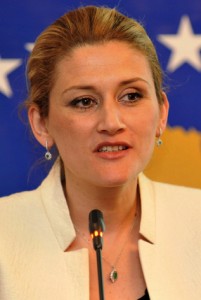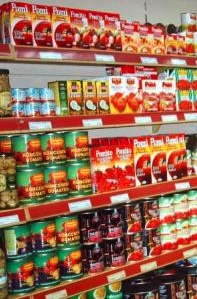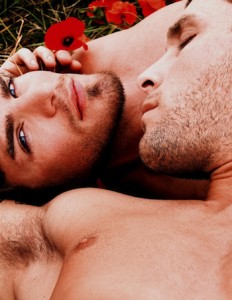Balkan Manhood Put to the Test at Two International Contests
 Balkan manhood will be put to the test when representatives from five ex-YU states will take to the stage in two international contests. While the Balkans has long been well known for its wealth of female beauty, the fine young men of the region sometimes feel that they have been overlooked somewhat. That could all change, this weekend, as the world is treated to not one but two showcases for modern masculinity.
Balkan manhood will be put to the test when representatives from five ex-YU states will take to the stage in two international contests. While the Balkans has long been well known for its wealth of female beauty, the fine young men of the region sometimes feel that they have been overlooked somewhat. That could all change, this weekend, as the world is treated to not one but two showcases for modern masculinity.
Vanja Grgec (Croatia) and Zlatan Duratovic (Bosnia) will compete in the Mr World contest, which is taking place in Kent, the garden of England. In a series of challenges, the search for the world’s most desirable man has seen national representatives from 48 countries tackling mud-caked sporting trials, as well as revealing their talents for singing, dance and martial arts. All the fun will come to a head on 24 November, when the young men will take to a stage for the final judging.
The EU is Our Only Future, says Kosovo’s Deputy PM
 Kosovo’s future is as a full member of the European Union, Deputy Prime Minister Mimoza Kusari-Lila said during a visit to London, this week. “Kosovo sees no other future apart from EU integration,’ she told an audience of academics and diplomats at the London School of Economics.
Kosovo’s future is as a full member of the European Union, Deputy Prime Minister Mimoza Kusari-Lila said during a visit to London, this week. “Kosovo sees no other future apart from EU integration,’ she told an audience of academics and diplomats at the London School of Economics.
After the latest progress report was delivered earlier this week, EU Enlargement Commissioner Stefan Fule visited Priština to confirm to Kosovo that the path to Brussels is theirs for the taking. He told Prime Minister Hashim Thaci that there are no legal obstacles to prevent Kosovo joining the EU and, if they knuckle down to institutional reform, talks on the EU’s Stabilization and Association Agreement (SAA) could begin as early as the first half of next year.
“Kosovo is still firm and determined towards its EU integration path,’ said Mrs Kusari-Lila. “What is very important is that objectives on this are clear.
Serbia’s Trade With Kosovo in Decline, Leaving Balkan Neighbours To Step In
 Serbian imports to Kosovo have dropped by a quarter and the country is no longer seen as a principal trading partner, Kosovo’s Trade and Industry Minister Mimoza Kusari-Lila told academics and diplomats at the LSE in London. But declining imports from Serbia have not left shelves empty as neighbouring states moved fast to benefit from Serbia’s 25% drop in exports to Kosovo.
Serbian imports to Kosovo have dropped by a quarter and the country is no longer seen as a principal trading partner, Kosovo’s Trade and Industry Minister Mimoza Kusari-Lila told academics and diplomats at the LSE in London. But declining imports from Serbia have not left shelves empty as neighbouring states moved fast to benefit from Serbia’s 25% drop in exports to Kosovo.
“We have increased our trade exchanges with Albania, with Turkey and with Croatia because we were getting space left by Serbian products when we stopped the flow of goods from Serbia into Kosovo,’ said Mrs Kusari-Lila, adding that Macedonia is now Kosovo’s biggest regional trading partner.
“Serbia is not a principal trade partner to Kosovo. But we do need the Serbian territory for our trucks to pass through because it is the easier access to the EU market. Trade with Serbia has declined and, to be honest, I thought it was about time.
“It was about time to have this kind of consequence to the negative policy they had towards Kosovo.”
Government Ban Cannot Silence Pride
 The Serbian Orthodox Church and right wing extremists have had their way: Belgrade Pride Parade has been banned by the Serbian Government for the second year running. Belgrade Pride has attracted a great deal of attention again this year, and not for good reason. Even before the Serbian Minister of the Interior knelt down to the church and extremists and banned the Parade, fear was mounting that alleged security issues would be used as justification for the government’s submission.
The Serbian Orthodox Church and right wing extremists have had their way: Belgrade Pride Parade has been banned by the Serbian Government for the second year running. Belgrade Pride has attracted a great deal of attention again this year, and not for good reason. Even before the Serbian Minister of the Interior knelt down to the church and extremists and banned the Parade, fear was mounting that alleged security issues would be used as justification for the government’s submission.
As well as the Church and some family groups who are vehemently opposed to a gay lifestyle, right wing extremists had been making their jaundiced opinions and intentions entirely clear. But threats of demonstrations should not be justification for a government ban on people exercising their legal rights to gather peacefully in a parade – a rights that has been recognised by the Serbian Constitutional Court.

